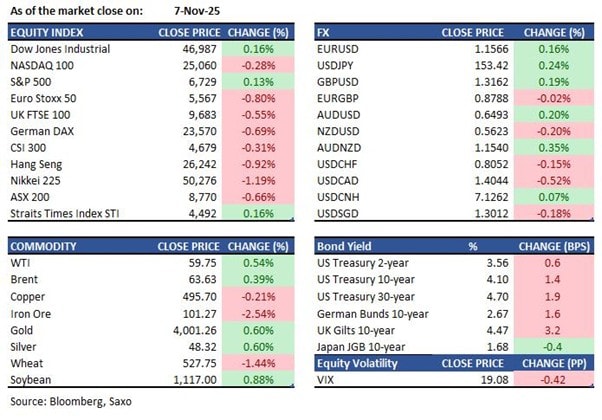Outrageous Predictions
A Fortune 500 company names an AI model as CEO
Charu Chanana
Chief Investment Strategist
Asia Market Quick Take – November 10, 2025
Key points:
------------------------------------------------------------------

Disclaimer: Past performance does not indicate future performance.
Macro:
Equities:
Earnings this week:
FX:
Commodities:
Fixed income:
For a global look at markets – go to Inspiration.
This content is marketing content and should not be considered investment advice. Trading financial instruments carries risks and historic performance is not a guarantee for future performance. The instrument(s) mentioned in this content may be issued by a partner, from which Saxo receives promotion, payment or retrocessions. While Saxo receives compensation from these partnerships, all content is conducted with the intention of providing clients with valuable options and information.